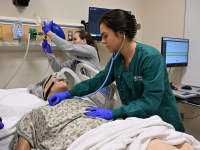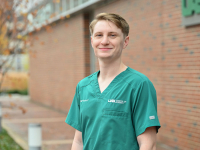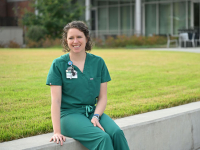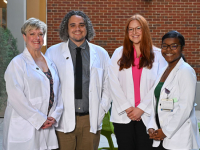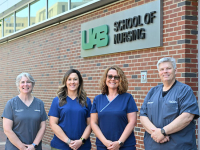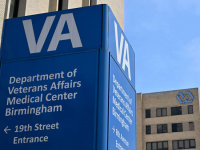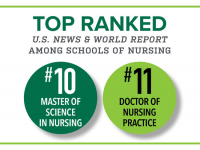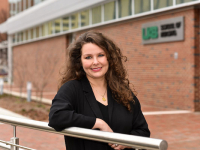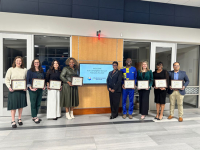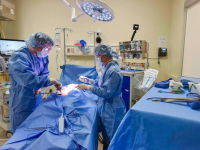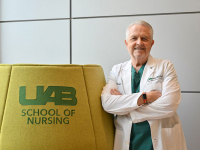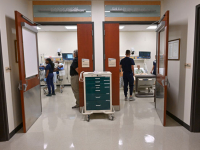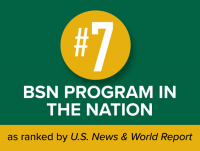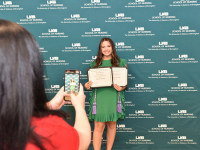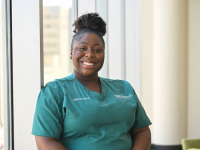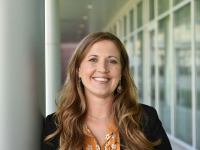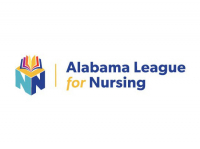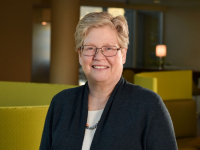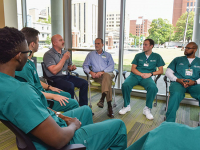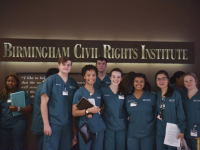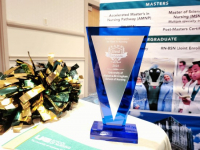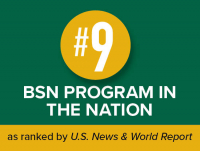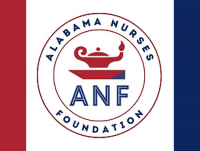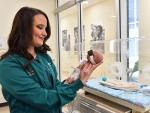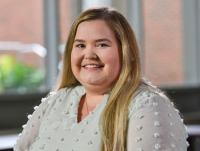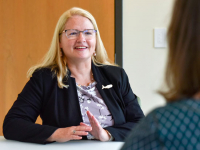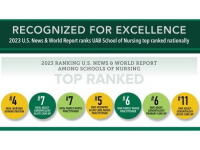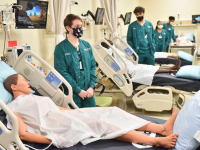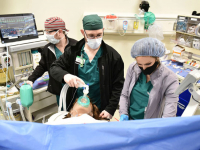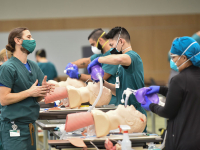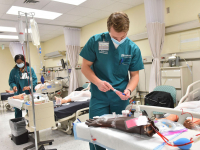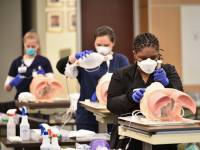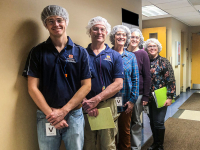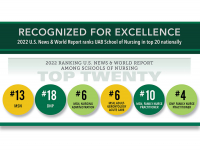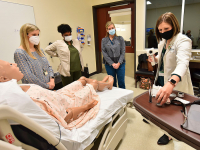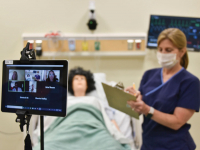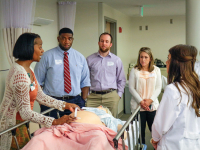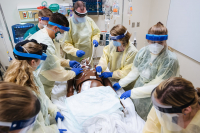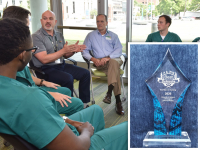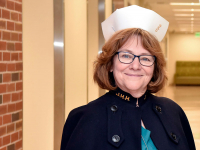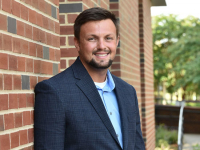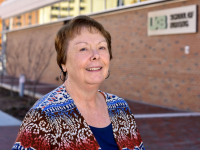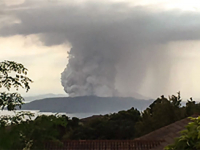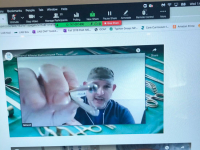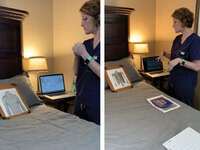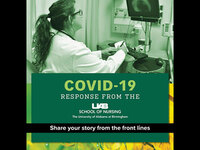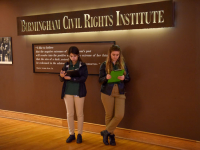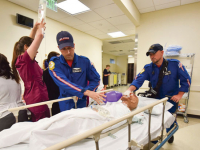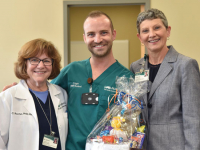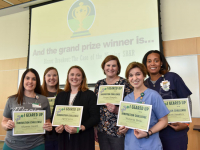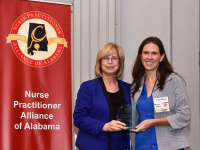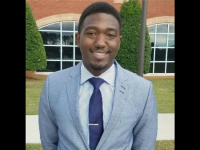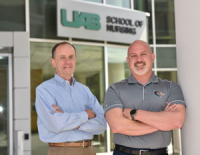 |
| Mary Lee was doing good, high-impact work for the YMCA. But her dreams still revolved around the military and nursing. |
In 2007, Mary Lee and her friend Brittany Gardner were college graduates with big dreams that had yet to be fulfilled.
Lee always had an interest in both the military and nursing. But she was doing good work — high-impact work — after graduating from UAB in 2003 with a health promotion degree. She worked for the YMCA, organizing the group’s youth sports and fitness efforts and spearheading a childhood-obesity program. But still she dreamed of a career in the military and nursing. Because the military offers world-class education, training and opportunity, she thought joining the Army would be the first step in realizing her dreams.
“Brittany and I were sitting around one day, and we just decided we needed to make a change,” Lee says. “We wanted to serve our country and make a difference. And we could receive valuable experiences and training while saving to pay for nursing school.”
| “I really feel I’m prepared after being a part of the VA Nursing Academy. You get focused and intense education, especially with the veteran population. I know my education combined with the experience I’m going to get in the SICU is going to help me reach my ultimate career goal of becoming a MedEvac air flight nurse.” |
Five years later, Lee is an Army veteran and a graduate of the UAB School of Nursing’s Veteran’s Affairs Nursing Academy. She graduated earlier this month and will begin her nursing career in the Surgical Intensive Care Step-Down Unit (SICU) in UAB Hospital in June.
“I really feel I’m prepared after being a part of the VA Nursing Academy,” Lee says. “You get focused and intense education, especially with the veteran population. I know my education combined with the experience I’m going to get in the SICU is going to help me reach my ultimate career goal of becoming a MedEvac air flight nurse.”
The UAB School of Nursing was designated a VA Nursing Academy by the U.S. Department of Veterans Affairs Office of Academic Affiliation in 2009, joining 14 other schools in the country with the prestigious designation.
The designation enables the school and the Birmingham VA Medical Center to work collaboratively to educate compassionate, highly skilled nurses to look after the health care needs of the nation’s veterans. It also expands learning opportunities for nursing students at VA facilities and funds faculty-development opportunities.
“Nurses are at the frontlines of America’s health-care system in every community and setting where our veterans and their families work and live — from doctor’s offices to hospitals to home care at home and abroad,” says School of Nursing Dean Doreen Harper, Ph.D. “The Birmingham VA Nursing Academy is a mutually beneficial partnership that educates the next generation of nurses through collaboration and knowledge-exchange to help improve care outcomes through innovative practice and care models that we develop and learn together.”
The School of Nursing and the Birmingham VA Medical Center have had a long-standing academic partnership through faculty practice, nursing research and clinical education. The project links institutional missions and governance, creates a pipeline for the development of VA Nurse Scholars and faculty and develops shared clinical, educational and leadership opportunities for students, staff and faculty.
“Students, faculty and VA nurses work collaboratively to discover and disseminate effective care-delivery models for our veterans to advance the highest-quality treatment and prevention,” Harper says. “Our partnerships expand learning opportunities for nursing students at VA facilities and fund additional faculty positions.”
UAB nursing students perform all their clinicals at the Birmingham VA Medical Center with the exception of obstetrics and pediatrics, and VA-based nurses are clinical and classroom instructors.
Lee says that experience has been invaluable to her. And when her patients notice her VA nametag says “veteran” on it, she’s seen how it makes a difference and helps her connect with them on a different level.
“The patients instantly start talking to you when they see you’re a veteran,” Lee says. “They’ll ask, ‘where were you stationed? Were you overseas?’ They’re automatically more trusting. If you get them talking about when they were in the service, it gets their mind off what they’re going through. It puts them at ease.”
Army and nursing for life
Lee’s summer promises to be intense as she realizes her dreams of a career in the military and nursing. She will complete her training to become an officer and an Army Reserve nurse.
It will be quite a change for Lee, a photojournalist when she was deployed to Iraq in 2009. The move from sergeant to officer also means more leadership opportunities.
“There are great leadership opportunities available, and opportunities for me to further my nursing education,” Lee says. “And that’s great, because I plan on staying in the Army and working as a nurse. I will retire from the Army as a nurse.”
Lee’s pull to the military is strong for many reasons. She says she admires the men and women who volunteer to serve, and the opportunity to join them is a humbling one for her.
“I have a heart for soldiers and all they do and give for our country,” Lee says. “I just enjoy it so much. It’s so rewarding being a part of the military and nursing because both are so big and enable you to do so much good. My dreams have come true.”

